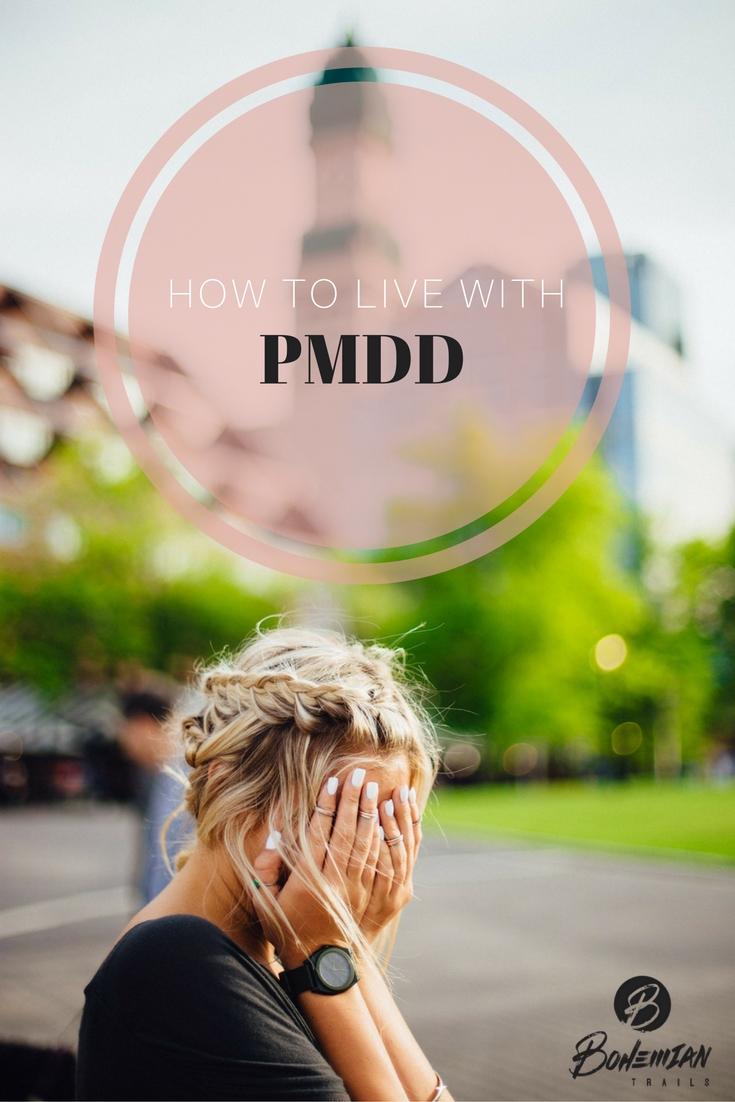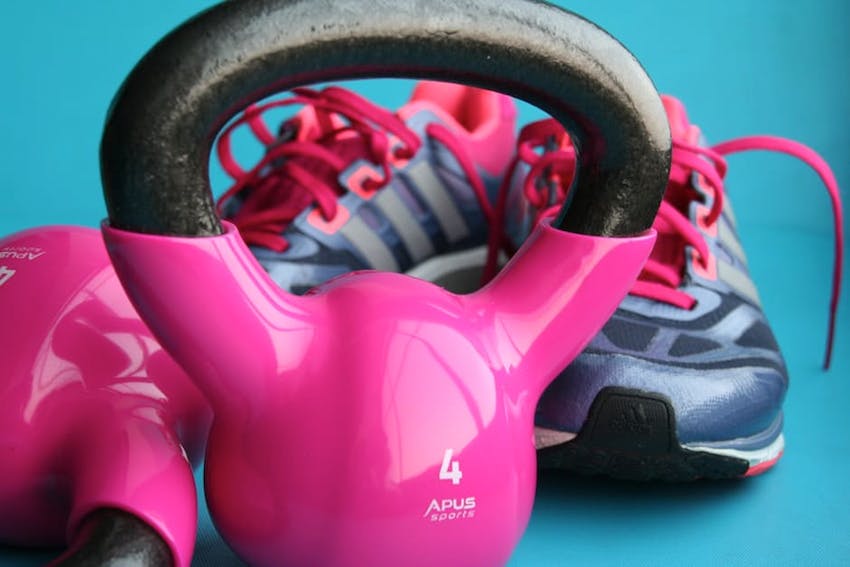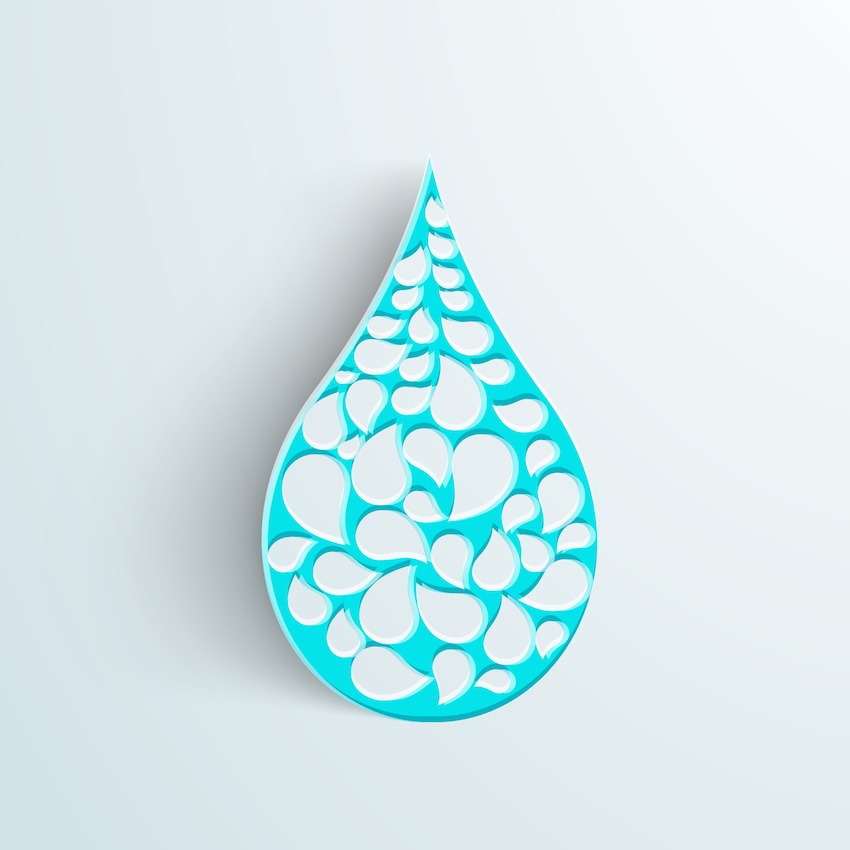I’m going to start off by saying that this is a very personal post and one that I’ve toyed with writing at all. After some back and forth, I decided to put it all out there in the hopes that by sharing my story, I can inspire others. It’s been awhile since I shared an intimate part of my life, so bear with me! Most of all, thank you for reading along 🙂


What is PMDD?
Premenstrual dysphoric disorder, or PMDD, is what I like to call PMS on steroids. While as many as 75% of women experience PMS symptoms during their cycle—anything from food cravings and cramps to moodiness and fatigue—PMDD is another beast entirely. “Beast” is a good term to describe how one feels; either that, or the mysterious case of Dr. Jekyll and Mr. Hyde.
PMDD can, and often does, completely mess with every aspect of one’s life, including school, work, social events and even relationships. For me, I didn’t realize I had PMDD for many years because symptoms can actually last up to two weeks per cycle, which is quite literally half of your fertile life. I just thought that being incredibly moody was part of my personality.
I chose to feature the picture below because it might help you visualize what PMDD feels like to women. Imagine that every pale pink flower = anger/irritability and all the deep pink flowers = frustration/anxiety. The green stems = daily activities that you can’t avoid. Now, imagine, that someone (i.e. your hormones) handed you this huge bouquet of flowers all at once, every month. Pretty overwhelming, right?


Knowing the signs
In a nutshell, PMDD symptoms are pretty extreme. I won’t list them all but the ones that affect me the most are mood swings, depression and feelings of hopelessness, intense anger and conflict with other people (often times my husband, close friends or family members), tension, anxiety, irritability and an overwhelming feeling of being out of control.
Knowing the signs can be trickier than you think, especially because many women who suffer from PMDD also suffer from various levels of depression and anxiety. That, coupled, with the two weeks out of every month possibility, means that it’s easy to confuse PMDD with another mental disorder entirely. Either way, it’s good to recognize your behavioral patterns and take action.
There are a few ways to note whether you might have PMDD or not. First, start keeping a calendar of your emotions and see if there are any ongoing, monthly trends. PMDD usually sets in 7-10 days before your period and can last through the first few days of your period, after which you usually go back to “normal.” Secondly, see a doctor for an expert opinion. My undiagnosed PMDD had gotten so bad that I had begun having brief, but still scary, thoughts of suicide. Please don’t let it get to that point…get help.


What it feels like
I’m not going to sugarcoat this. There is nothing fun about having PMDD. In the past year alone, I’ve had serious PMDD attacks (kind of like a build-up of moodiness, anxiety and anger that culminates in an episode of uncontrollable screaming, crying and irrational thinking) at two weddings, three separate work-related trips, and a handful of breakdowns in the comfort of my own home…luckily.
For me, the most frightening aspect of PMDD is that it can completely mess with your sense of self. During these episodes, I truly believe that everyone is out to get me, especially my husband, and that my life is falling down around me. I feel trapped, suffocated and full of rage. In short, I am not myself. It’s as if someone else has taken over your body and refuses to give it back.


Relationship woes
I’ll try not to get into the messy details out of respect for my husband but PMDD is horrible on relationships. The only comfort I have in this is knowing that so many other women with PMDD face the same challenge. It’s human nature to take things out on the ones you love the most and unfortunately, that’s often your life partner.
This past year has been especially hard on both of us for various reasons and PMDD has exasperated these already existing issues. There are other factors in my life right now that are making me feel completely out of control on an everyday basis, so when I feel the effects of PMDD coming on, I know that those feelings will become much, much more intense.
The best advice I can give those of you in relationships is to verbally explain what PMDD is to your partner before the inevitable breakdown. I’d also give him or her a heads up as to when you are starting to feel irritable. It’s best to avoid serious conversations during this time, as your PMDD symptoms can make things much worse.


Getting help
Yes, you can get help! I’ve pretty much tried everything. I started with learning a stress-relieving breathing meditation technique. Then I began eating more organic foods. When things didn’t get any better (also around the time of the suicidal thoughts) I went to see a Psychiatrist. Within 20 minutes of meeting me, she suggested I had PMDD. All of a sudden, it was as if the clouds had parted and I had clarity for the first time. Sure, I wasn’t cured but at least I better understood what was happening to me every month.
Nowadays I do a lot to try to keep my emotions in check. I still see my Psychiatrist every 4-6 weeks and have begun seeing a therapist weekly who teaches me techniques to better control my emotions. I’ve cut sugar from my diet as much as possible, have increased my cardio workouts, began taking medication and most recently, switched to a birth control pill that claims to treat PMDD.
It’s also good to weigh your options. Many women with PMDD respond well to SSRIs, which makes a lot of sense when you look at the hard facts. There have been studies linking PMDD and low levels of serotonin. Alternatively, you can target dopamine with medicines like Wellbutrin. Another form of treatment is hormonal birth control, as mentioned above. The theory is that the regular level of hormones will help keep symptoms at bay. Personally, I am or have been on all three forms of treatment and as much as I hate having to take these medications they can and DO work.


Lifestyle changes
PMDD affects women in different ways, so every case is different. For me, I discovered that I react well to structure and creating a regular routine. While this is the norm for many people in the work force, my career is the opposite of structured. I travel regularly, don’t work from an office and my income fluctuates month-to-month.
Instead of forcing myself to continue this lifestyle, I decided to take a step back. I’ve started traveling less and when I do, it’s often for personal reasons rather than for work. I’ve also signed up with Croissant so that I can work 40 hours a week from a co-working space, thus providing more structure to my day. As strange as it sounds, being around people even when I’m not interacting with them, really boosts my mood and keeps me focused on work-related tasks.
As for my workload, I realized that juggling too many things was adding to my stress so I dropped a few clients this past year in order to focus on a few that I’m most passionate about. Another thing that has helped me feel less isolated is working in a team environment, even though I’m remote. The result? I’m in control and feel less overwhelmed.


Dietary restrictions
While I can’t speak for all woman who have PMDD, I can mention a few dietary changes that are helping me maintain my sanity during these stressful times. The first biggie was quitting coffee. I know, I know! There’s nothing wrong with coffee, of course, but since I’m prone to anxiety, my doctor suggested I eliminate it from my diet. It’s been 5+ months now! As with any dietary change, make sure to check with your doctor before self-diagnosing and self-medicating.
All women, including women with PMDD, lack certain vitamins in their everyday diet, so I’ve decided to add vitamin supplements to my diet. I’ve been using Ritual, non-GMO capsules (take 2 per day) packed with core nutrients for women: vitamin B12, vitamin D3, vitamin K2 MK-7, vitamin E, folate, omega-3 fatty acids, boron, iron, and magnesium. Alternatively, you can take some of these nutrients as one-offs. My doctor recommended Innate Response and I had a good experience with a few of their supplements: adrenal response, magnesium, vitamin D and B complex.
Last but certainly not least, you may need to lay off the alcohol, at least during your PMDD prone days. This is a tough one for me because I really, really love my wine but since alcohol messes with your hormones, you’re just asking for trouble. If you don’t trust yourself to go to a party or event without drinking, consider re-scheduling so as to avoid the temptation.


The bottom line
PMDD absolutely sucks but you don’t have to let it ruin or run your life. Know that you aren’t alone; there are SO many women out there who suffer from PMDD and like all things in life, the show must go on. My biggest piece of advice is to take your condition seriously and own it. Only then can you figure out a game plan and set yourself up for success.
Even though I’m still prone to PMDD attacks and emotional breakdowns, I feel comfort in knowing that based on lifestyle and dietary changes, I have a fighting chance of taking my life back.
What’s your biggest struggle on the road? Tell me in the comments below!
Like me on Facebook and Tweet me: @BohemianTrails.
Sign up for my free monthly BOHO BLAST!









